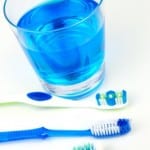 Dental decay can be a real pain, but with our quick and simple check-ups, we can make sure that your teeth remain healthy, strong and cavity-free. We recommend 6 monthly check-ups for adults and children.
Dental decay can be a real pain, but with our quick and simple check-ups, we can make sure that your teeth remain healthy, strong and cavity-free. We recommend 6 monthly check-ups for adults and children.
What happens when you have a check up?
Routine check-ups only last a few minutes and you don’t need to worry about a thing; we promise that there won’t be any pain and we do our best to make you feel as comfortable as possible in the dental chair. A check-up is a chance for us to have a look at your teeth and gums and check the soft tissue in your mouth; we will check the teeth for any signs of cavities or decay and make sure there are no signs of gum disease. We record any changes in your notes and discuss any potential issues with you; if you do need treatment, such as a filling, we will arrange an appointment at a time that is convenient for you. We offer oral cancer screening, but we also carry out checks during our routine check-ups. We can also offer advice about teeth cleaning and oral hygiene, diet and giving up smoking.
The importance of check-ups
Check-ups are important for a number of reasons; firstly, they give us a chance to spot developing problems at an early stage and this prevents you from suffering, increases the chances of successful treatment and saves you money. Oral health is really important, not just because we don’t want you suffering with aches and pains or swollen gums, but also because research suggests that gum disease can increase your risk of developing other serious health conditions, including heart disease. We also perform oral cancer checks as part of your dental check-ups and the earlier signs are spotted, the higher the chance of successful treatment.
With regular check-ups, you can make major strides towards a beautiful, healthy smile; call us today to book your appointment.






 Cavities can occur in teeth for a variety of reasons, from the relatively straight forward, like a build up of plaque to the more complicated and less well known like xerostamia (commonly known as dry mouth). Whatever the root cause, it is necessary to get any cavities filled as soon as possible because once a tooth starts to decay it won’t just stop of its own accord.
Cavities can occur in teeth for a variety of reasons, from the relatively straight forward, like a build up of plaque to the more complicated and less well known like xerostamia (commonly known as dry mouth). Whatever the root cause, it is necessary to get any cavities filled as soon as possible because once a tooth starts to decay it won’t just stop of its own accord. Bringing up children can be fraught with difficulties and you will probably spend much of your time worrying about whether you are doing the right things so that your offspring are growing to be healthy and happy. Nobody wants to fuss over their children too much and leave them without a sense of self reliance but you should be taking steps to ensure that they have healthy teeth and gums and do not have to go through the pain of an oral condition.
Bringing up children can be fraught with difficulties and you will probably spend much of your time worrying about whether you are doing the right things so that your offspring are growing to be healthy and happy. Nobody wants to fuss over their children too much and leave them without a sense of self reliance but you should be taking steps to ensure that they have healthy teeth and gums and do not have to go through the pain of an oral condition. The development of cavities in your teeth can be a painful process and must be dealt with. Unfortunately you will have little choice but to have a filling put in place to shore up the hole or holes that have appeared in your teeth. This is to ensure that the nerves inside are not interfered with and infection cannot take hold.
The development of cavities in your teeth can be a painful process and must be dealt with. Unfortunately you will have little choice but to have a filling put in place to shore up the hole or holes that have appeared in your teeth. This is to ensure that the nerves inside are not interfered with and infection cannot take hold. Having a pain free set of teeth is something that many of us take for granted. But teeth are an incredibly sensitive part of the body and any pain that you have there will make normal, every day activities such as eating, drinking and talking, that much more difficult. There are a number of causes of dental pain and you should seek the advice of your dentist if it should occur.
Having a pain free set of teeth is something that many of us take for granted. But teeth are an incredibly sensitive part of the body and any pain that you have there will make normal, every day activities such as eating, drinking and talking, that much more difficult. There are a number of causes of dental pain and you should seek the advice of your dentist if it should occur. For some reason, the evil legend that is the root canal still tends to strike fear into its prey and once the victim has had the excruciating treatment, pain ensues for months. Sound familiar- well it does to most dentists in the city of Leeds! In all reality, a simple look on the internet could dispel any myths that surround the procedure. The reason for having a root canal stems from bad oral hygiene, allowing plaque to develop and form cavities. If the tooth is to be saved, then the cavity must be cleared of decay, the roots removed and the gap that’s left filled. In times gone by, the tooth would have been ‘pulled’ and here lies one of the myths that surround root canals. If a tooth is causing pain, an extraction is not only considered to be less painful, but cheaper too (the truth is, a root canal is no more painful than a filling). But removing a tooth (when it needn’t be) leads to all sorts of problems. The surrounding teeth can suffer trauma, start to move and become loose, leading to gum disease and infection. Another myth that stems out of this treatment is based on other people’s experiences, like that of your parent’s in the bad old days, “my god! This is what I’m in for!” If in this modern world, you still listen to gossip, believe in fairies, monsters and death by root canal, maybe a little research and a consultation with your dentist will dispel such myths, allowing you to sleep at night with the light out and get out more.
For some reason, the evil legend that is the root canal still tends to strike fear into its prey and once the victim has had the excruciating treatment, pain ensues for months. Sound familiar- well it does to most dentists in the city of Leeds! In all reality, a simple look on the internet could dispel any myths that surround the procedure. The reason for having a root canal stems from bad oral hygiene, allowing plaque to develop and form cavities. If the tooth is to be saved, then the cavity must be cleared of decay, the roots removed and the gap that’s left filled. In times gone by, the tooth would have been ‘pulled’ and here lies one of the myths that surround root canals. If a tooth is causing pain, an extraction is not only considered to be less painful, but cheaper too (the truth is, a root canal is no more painful than a filling). But removing a tooth (when it needn’t be) leads to all sorts of problems. The surrounding teeth can suffer trauma, start to move and become loose, leading to gum disease and infection. Another myth that stems out of this treatment is based on other people’s experiences, like that of your parent’s in the bad old days, “my god! This is what I’m in for!” If in this modern world, you still listen to gossip, believe in fairies, monsters and death by root canal, maybe a little research and a consultation with your dentist will dispel such myths, allowing you to sleep at night with the light out and get out more. Tooth decay is caused by a build up of a filmy, sticky substance called plaque that coats the teeth and releases acid which erodes the protective enamel layer. This causes small holes called cavities to appear in the teeth allowing bacteria to penetrate to the sensitive inner area of the tooth. Inside the tooth is the dental nerve housed in a casing of a softer material called pulp. If bacteria gets into this part of the tooth it can cause an infection that will not only be painful but could result in the death and eventual loss of the tooth.
Tooth decay is caused by a build up of a filmy, sticky substance called plaque that coats the teeth and releases acid which erodes the protective enamel layer. This causes small holes called cavities to appear in the teeth allowing bacteria to penetrate to the sensitive inner area of the tooth. Inside the tooth is the dental nerve housed in a casing of a softer material called pulp. If bacteria gets into this part of the tooth it can cause an infection that will not only be painful but could result in the death and eventual loss of the tooth. The clean feeling you get after you have been to the dentist is hard to beat and almost impossible to recreate at home, no matter how hard you try to clean your teeth. That is because dentists are experts and able to use special tools and techniques to get your teeth as clean as they can possibly be. This will almost always involve techniques called scaling and polishing.
The clean feeling you get after you have been to the dentist is hard to beat and almost impossible to recreate at home, no matter how hard you try to clean your teeth. That is because dentists are experts and able to use special tools and techniques to get your teeth as clean as they can possibly be. This will almost always involve techniques called scaling and polishing.

